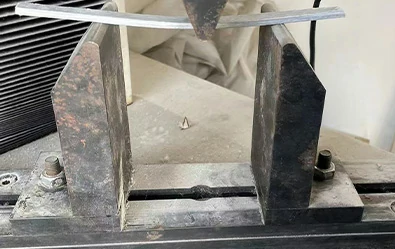loading...
- No. 9, Xingyuan South Street, Dongwaihuan Road, Zaoqiang County, Hengshui, Hebei, China
- admin@zjcomposites.com
- +86 15097380338
- Welcome to visit our website!
FRP Softener Tank Design and Implementation for Water Treatment Solutions
Understanding FRP Softener Vessels Benefits and Applications
Fiberglass Reinforced Plastic (FRP) softener vessels have emerged as a popular choice in various industries for water treatment solutions. These vessels play a crucial role in the ion exchange process that is essential for softening hard water. As industries and households strive to improve water quality, understanding the advantages and applications of FRP softener vessels proves to be essential.
What is FRP?
FRP, or Fiberglass Reinforced Plastic, is a composite material made from a polymer matrix reinforced with fiberglass. This combination provides exceptional strength-to-weight ratios, corrosion resistance, and durability. These characteristics make FRP an ideal choice for applications in environments where traditional materials, like steel, may corrode or degrade due to exposure to water and chemicals.
Benefits of FRP Softener Vessels
1. Corrosion Resistance One of the primary advantages of FRP softener vessels is their resistance to corrosion. Unlike metal vessels, which can rust when exposed to hard water and other chemicals, FRP vessels maintain their integrity over time, reducing maintenance costs and extending their lifespan.
2. Lightweight FRP vessels are significantly lighter than their metal counterparts. This feature allows for easier installation and handling, particularly in situations where weight is a critical factor, such as on rooftops or in elevated installations.
3. High Strength Despite being lightweight, FRP is exceptionally strong. This strength allows FRP vessels to withstand high pressures and temperatures, making them suitable for various applications, from residential water softening systems to industrial water treatment processes.
4. Cost-Effective While the initial cost of FRP softener vessels may be higher than traditional materials, their longevity and reduced maintenance needs often lead to overall cost savings. Businesses can benefit from fewer replacements and less downtime.
frp softener vessel

5. Customizable FRP vessels can be easily molded into different shapes and sizes, enabling manufacturers to produce customized solutions that fit specific application needs. This versatility extends their applicability across various industries, from food and beverage to pharmaceuticals.
Applications of FRP Softener Vessels
FRP softener vessels are utilized in numerous applications across diverse industries. Some key areas include
- Industrial Water Treatment Many industries, such as manufacturing, textiles, and food processing, use FRP softener vessels to ensure the quality of water used in various processes. Softened water helps in reducing scaling and extending the lifespan of machinery.
- Residential Water Softening Homeowners increasingly install FRP softener systems as part of their water treatment solutions. Softened water enhances the efficiency of appliances, reduces soap scum, and protects plumbing systems from scale buildup.
- Commercial Applications Restaurants, hotels, and large commercial facilities utilize FRP vessels for water softening to ensure that their water quality meets health and safety regulations while providing customers with high-quality services.
Conclusion
FRP softener vessels represent a significant advancement in water treatment technology, providing a durable, efficient, and cost-effective solution for a range of applications. As industries and households alike prioritize water quality, the benefits of FRP vessels underscore their importance in meeting modern water treatment needs. With their unique properties and versatility, FRP softener vessels are set to play an integral role in the future of water management solutions.
-
The Rise of FRP Profiles: Strong, Lightweight, and Built to LastNewsJul.14,2025
-
SMC Panel Tanks: A Modern Water Storage Solution for All EnvironmentsNewsJul.14,2025
-
GRP Grating: A Modern Solution for Safe and Durable Access SystemsNewsJul.14,2025
-
Galvanized Steel Water Tanks: Durable, Reliable, and Ready for UseNewsJul.14,2025
-
FRP Mini Mesh Grating: The Safer, Smarter Flooring SolutionNewsJul.14,2025
-
Exploring FRP Vessels: Durable Solutions for Modern Fluid HandlingNewsJul.14,2025
-
GRP Structures: The Future of Lightweight, High-Performance EngineeringNewsJun.20,2025
